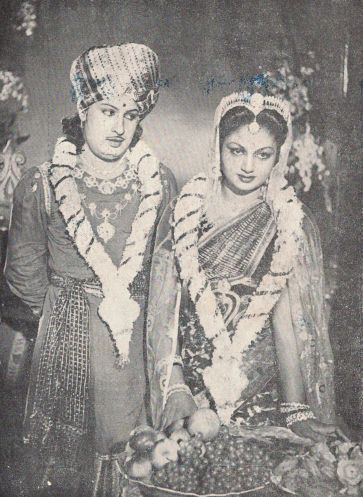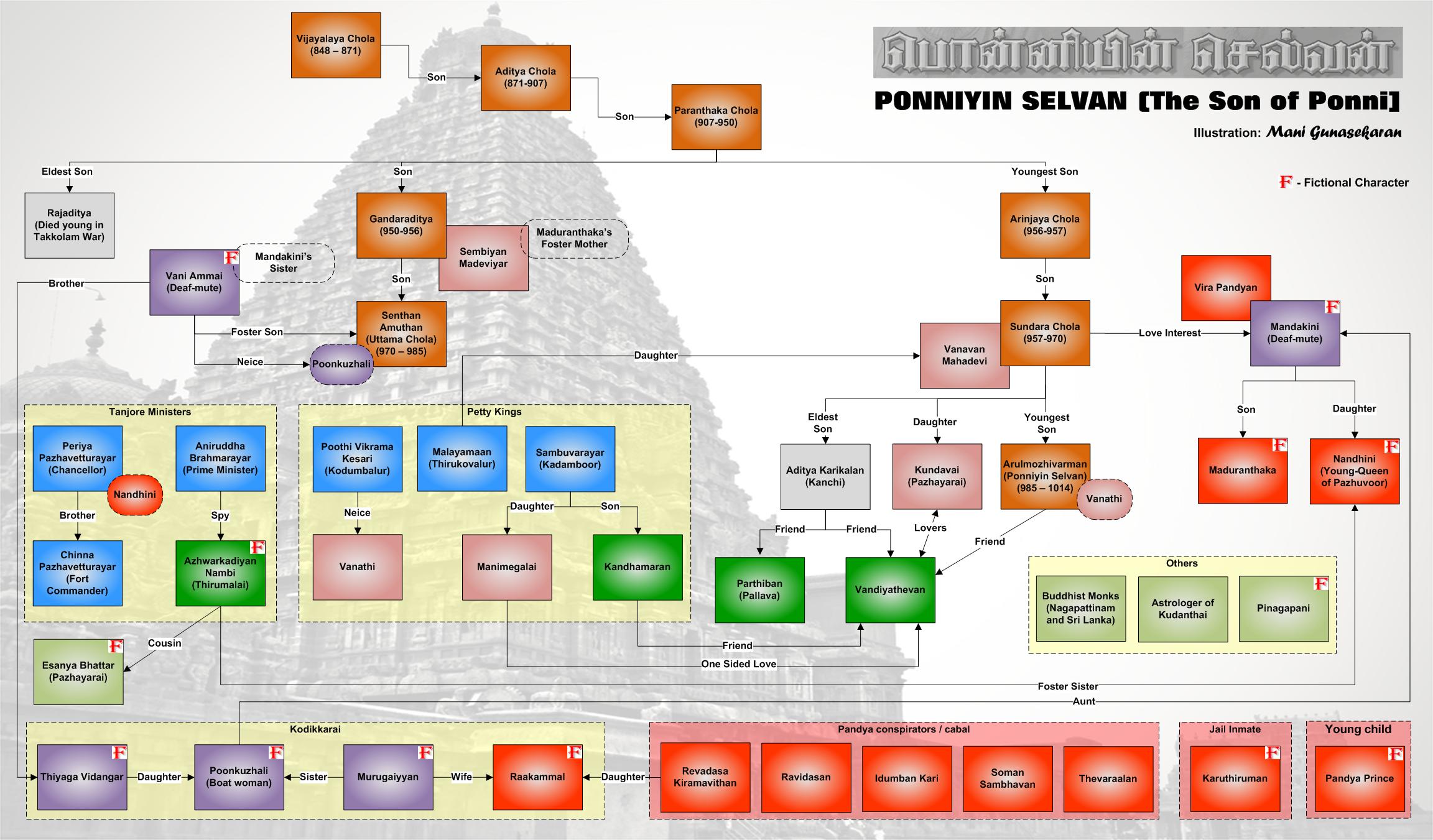|
M. G. Ramachandran's Unrealised Projects
During his career, Indian actor-filmmaker M. G. Ramachandran had worked on a number of projects which never progressed beyond the pre-production stage under his acting commitments or direction. Some of these projects fell into development hell or were officially cancelled. ''Adhirooba Amaravathi'' ''Anna Nee En Deivam'' ''Andru Sinthiya Ratham'' The film, directed by C. V. Sridhar, began shooting in the 1960s, but was shelved when Ramachandran walked out after only a few days of shooting. ''Bhavani'' The film was written by A. K. Velan and was to be directed by Masthan. Ramachandran's brother M. G. Chakrapani, Chakrapani produced this film, which got shelved after some progress, but Chakrapani later revived this film as ''Arasa Kattalai'' with Ramachandran returning. ''Chaaya'' The film was to be produced under the Pakshiraja banner, but failed to commence shoot. ''Inaindha Kaigal'' ''Maadi Veettu Ezhai'' In 1966, Ramachandran and J. P. Chandrababu came together for a film ... [...More Info...] [...Related Items...] OR: [Wikipedia] [Google] [Baidu] |
Kalki Krishnamurthy
Ramaswamy Krishnamurthy (9 September 1899 – 5 December 1954), better known by his pen name Kalki, was an Indian writer, journalist, poet, critic and Indian independence activist who wrote in Tamil. He chose the pen-name "Kalki", the future incarnation of the Hindu God Vishnu. He founded a magazine, which was also named ''Kalki'', with T Sadasivam being the co-founder, in 1941. Krishnamurthy‘s writings include over 120 short stories, 10 novellas, 5 novels, 3 historical romances, editorial and political writings and hundreds of film and music reviews. Early life Ramaswamy Krishnamurthy was born in a Poor Tamil Brahmin Iyer family on 9 September 1899 in Puthamangalam, near Manalmedu, in Mayiladuthurai district in the Indian state of Tamil Nadu. Krishnamurthy's father was Ramaswamy Aiyar, an accountant in Puttamangalam village in the old Tanjore district of erstwhile Madras Presidency. He began his primary education in his village school and later attended Municipal High Scho ... [...More Info...] [...Related Items...] OR: [Wikipedia] [Google] [Baidu] |
Uthama Puthiran (1958 Film)
''Uthama Puthiran'' () is a 1958 Indian Tamil-language historical action film directed by T. Prakash Rao. Co-produced by C. V. Sridhar, who also wrote the screenplay, the film stars Sivaji Ganesan and Padmini, with M. K. Radha, M. N. Nambiar, K. A. Thangavelu, Ragini and Kannamba in supporting roles. It revolves around twins who are separated at birth; one grows up as a kind and honest man, while the other grows up as a greedy and arrogant man. ''Uthama Puthiran'' is a remake of the 1940 Tamil film of the same name, itself based on ''The Man in the Iron Mask'', the third part of the 1847–1850 novel '' The Vicomte of Bragelonne: Ten Years Later'' by Alexandre Dumas. It is the first film to feature Ganesan in two distinct roles, and the first Indian film to have the shots with zoom technique. Cinematography was handled by A. Vincent, and editing by N. M. Shankar. ''Uthama Puthiran'' was released on 7 February 1958, and distributed by Ganesan's company Sivaji Films. T ... [...More Info...] [...Related Items...] OR: [Wikipedia] [Google] [Baidu] |
Savitri (actress)
Nissankara Savitri (also known as Savitri Ganesan; 6 December 1934 – 26 December 1981) was an Indian actress and filmmaker who predominantly worked in Telugu and Tamil films. Regarded as one of the greatest and most influential actresses in the history of Indian cinema, she was popularly known by the epithets ''Mahanati'' () in Telugu, and ''Nadigaiyar Thilagam'' () in Tamil. Savitri was among the highest-paid in South Indian cinema during the 1950s and 1960s and is often considered the "Queen of Tamil and Telugu cinema". In a career spanning three decades, Savitri appeared in more than 250 films. Her first significant role was in the 1952 film '' Pelli Chesi Choodu''. Later, she starred in several critically acclaimed and commercially successful films, including '' Devadasu'' (1953), '' Missamma'' (1955), '' Ardhangi'' (1955), ''Donga Ramudu'' (1955), '' Thodi Kodallu'' (1957), '' Mayabazar'' (1957), '' Mangalya Balam'' (1959), '' Aradhana'' (1962), '' Gundamma Katha'' (1 ... [...More Info...] [...Related Items...] OR: [Wikipedia] [Google] [Baidu] |
Padmini (actress)
Padmini Ramachandran (13 December 1932 – 24 September 2006) was an Indian actress and trained Bharatanatyam dancer, who acted in over 250 Indian films. She acted in Tamil, Hindi, Malayalam, Telugu and Russian language films. Padmini, with her elder sister Lalitha and her younger sister Ragini, were called the " Travancore sisters". Early life Padmini was born and raised in Trivandrum (present-day Thiruvananthapuram), in what was then the princely state of Travancore (now the Indian state of Kerala) to a Malayali Nair family. She was the second daughter of Sree Thankappan Pillai and Saraswathi Amma. Career At the age of 16, Padmini was cast as a dancer in the Hindi film '' Kalpana'' (1948), which launched her career. She acted in films consecutively for nearly 30 years in the first lease of her career. Padmini starred with several of the most well-known actors in Indian film, including Sivaji Ganesan, M. G. Ramachandran, N. T. Rama Rao, Raj Kapoor, Shammi Kap ... [...More Info...] [...Related Items...] OR: [Wikipedia] [Google] [Baidu] |
Vyjayanthimala
Vyjayanthimala Bali ( Raman; born 13 August 1933), known mononymously as Vyjayanthimala, is an Indian parliamentarian, dancer and former actress. Regarded as one of Hindi cinema's greatest actresses and dancers, she is the recipient of several accolades, including four Filmfare Awards and two BFJA Awards. Considered the first female superstar of Indian Cinema, she made her screen debut at the age of 16 with the Tamil film '' Vaazhkai'' (1949), and followed this with a role in the Telugu film '' Jeevitham'' (1950). Her first work in Hindi cinema was the social guidance film '' Bahar'' (1951), which she headlined, and achieved her breakthrough with the romance '' Nagin'' (1954). She garnered widespread critical acclaim for her role in the period drama '' Devdas'' (1955), where she played Chandramukhi, a ''tawaif'' with a heart of gold. The film and her acting was highly praised, later considered to be her magnum opus. For ''Devdas'', she won the Filmfare Award for Best Sup ... [...More Info...] [...Related Items...] OR: [Wikipedia] [Google] [Baidu] |
Gemini Ganesan
Ramasamy Ganesan (17 November 1920 – 22 March 2005), better known by his stage name Gemini Ganesan, was an Indian actor who worked mainly in Tamil cinema. He was referred as Kaadhal Mannan (King of Romance) for his romantic roles in films. Ganesan was one of the "three biggest names of Tamil cinema", the other two being M. G. Ramachandran and Sivaji Ganesan. While Sivaji Ganesan excelled in Drama (film and television), dramatic films and M. G. Ramachandran was popular as an action hero, Gemini Ganesan was known for his Romance film, romantic films. A recipient of the Padma Shri in 1971, he had also won several other awards including the Kalaimamani, the MGR Gold Medal, and the Screen Lifetime Achievement Award. He was one of the few college graduates to enter the film industry then. Gemini Ganesan made his debut with ''Miss Malini'' in 1947 but was noticed only after playing the villain in ''Thai Ullam'' in 1952. After playing the lead role in ''Manam Pola Mangalyam'' (1953), ... [...More Info...] [...Related Items...] OR: [Wikipedia] [Google] [Baidu] |
M G Ramachandran
Maruthur Gopalan Ramachandran (17 January 1917 – 24 December 1987), popularly known by his initialism M.G.R. and as Makkal Thilagam/Puratchi Thalaivar, was an Indian actor, politician, and philanthropist who served as the chief minister of Tamil Nadu from 1977 until his death in 1987. He was the founder and former general secretary of the All India Anna Dravida Munnetra Kazhagam. On 19 March 1988, M.G.R. was posthumously awarded the Bharat Ratna, India's highest civilian honour. M.G.R. is regarded as one of the most influential politicians of post-independence India. Apart from politics, as a film personality, he won the National Film Award, three Tamil Nadu State Film Awards, and three Filmfare Awards South. In his youth, M.G.R. and his elder brother M. G. Chakrapani became members of a drama troupe to support their family. Influenced by Gandhian ideals, M.G.R. joined the Indian National Congress. After a few years of acting in plays, he made his film debut in the 1936 f ... [...More Info...] [...Related Items...] OR: [Wikipedia] [Google] [Baidu] |
Ensemble Cast
In a dramatic production, an ensemble cast is one that comprises many principal actors and performers who are typically assigned roughly equal amounts of screen time.Random House: ensemble acting Linked 2013-07-17 Structure In contrast to the popular model, which gives precedence to a sole protagonist, an ensemble cast leans more towards a sense of "collectivity and community". Cinema Ensemble casts in film were introduced as early as September 1916, with D. W. Griffith's silent epic film '' Intolerance'', featuring four separate though parallel plots. The film follows the lives of several characters over hundreds of years, across different cultures and time periods. The unification of different plot lines and character arcs is a key characteristic of ensemble casting in film; whether it is a location, event, or an overarching theme that ties the film and characters together. Films that feature ensembles tend to emphasize the interconnectivity of the characters, even when the ... [...More Info...] [...Related Items...] OR: [Wikipedia] [Google] [Baidu] |
Ponniyin Selvan
''Ponniyin Selvan'' () is a Tamil language historical fiction novel by Indian author Kalki Krishnamurthy. It was first serialised in the weekly editions of ''Kalki'', a Tamil magazine, from 29 October 1950 to 16 May 1954 and later integrated into five volumes in 1955. In about 2,210 pages, it tells the story of early days of Chola prince Arulmozhivarman. Kalki visited Sri Lanka three times to gather information and for inspiration. ''Ponniyin Selvan'' is regarded as one of the greatest novels of Tamil literature. Publication of the series in "Kalki" magazine increased the publication's circulation to 75,000 subscriptions which was a significant number in post-independence India and a reflection of the work's popularity. The book continued to be admired in the modern era, developing a cult following and fanbase among people of all generations. ''Ponniyin Selvan'' has garnered critical acclaim for its tightly woven plot, vivid narration, witty dialogue, and portrayal of the intr ... [...More Info...] [...Related Items...] OR: [Wikipedia] [Google] [Baidu] |
Dinamalar
''Dinamalar'' is an Indian Tamil daily newspaper. It was founded in 1951 by T. V. Ramasubba Iyer. ''Dinamalar'' has an average circulation of 689,773 ( ABC Jan–Jun 2022). History Dinamalar was founded by T. V. Ramasubbaiyer on 6 September 1951 at Thiruvananthapuram. The operations were moved to Tirunelveli in 1957. Circulation The newspaper is printed in 10 cities in Tamil Nadu namely Chennai, Coimbatore, Erode, Madurai, Nagercoil, Pondicherry, Salem, Tiruchirappalli, Tirunelveli, Vellore and Bangalore. As of Jun 2022, the newspaper has a circulation of 1,731,8959 and more than 2 million epaper subscribers. Content The investigative journal Cobrapost released an undercover investigation and video which exposed the executives of Dinamalar speaking of promoting Hindutva and promoting the agenda of Rashtriya Swayamsevak Sangh (RSS) and the Bharatiya Janata Party The Bharatiya Janata Party (BJP; , ) is a political party in India and one of the two major ... [...More Info...] [...Related Items...] OR: [Wikipedia] [Google] [Baidu] |





